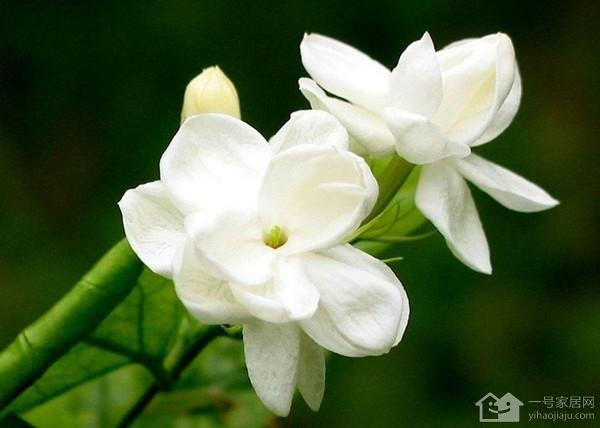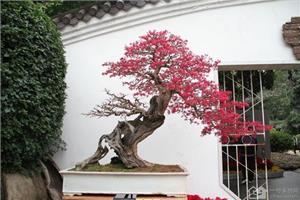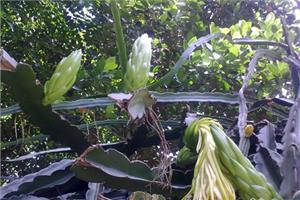The reason for the delay of flowering time of Gardenia jasminoides
In life, the existence of gardenia can be seen everywhere, whenever flowering, you can smell the long fragrance, and in many parks, communities, gardenia is a very important garden ornamental plant. And gardenia is also very easy to breed, but also has indomitable vitality. So, what month is the florescence of gardenia?

Introduction of Gardenia
Gardenia, belonging to Rubiaceae, is an evergreen shrub with emerald green leaves, glossy grass, evergreen all the year round, white and fragrant flowers in summer, yellowish brown after withering, the afterscent is still overflowing, and the florescence is April or May. Gardenia is a popular ornamental flower in courtyard and potted plant. It has strong adaptability to the environment, fertile, dry and wet growth. However, in order to make its growth luxuriant, no matter it is planted in the ground or pot, it is necessary to do a good job in selecting soil quality, summer shade, reasonable fertilization, proper pruning and so on.
Gardenia not only likes light but also can endure shade, the leaf color is green in the shade, but the flowering is slightly worse. Summer should not be strong direct sunlight, otherwise the leaves will turn yellow. It can be planted in parks, around the courtyard, under the south-facing windows of public buildings and residential buildings, and it will grow better if there are trees with shady branches and leaves above. Potted gardenia flowers spend the summer, can not be put on the balcony, sun exposure, otherwise the branches and leaves will be scorched yellow, or even withered and died. Potted plants can be moved indoors and placed on desks, coffee tables and corridors, which can not only decorate the indoor environment, but also avoid sun exposure. The light is not strong in spring and autumn, so you can put it outdoors to fully accept the sun.
II. Flowering period of Gardenia jasminoides
Gardenia likes warm, moist semi-shady environment, slightly shade-resistant, afraid of strong light exposure. The flowering period is longer, from May to June to August, and the fruit ripening stage is October. But a single flower blooms for only 4 or 5 days. If the fertilizer is added, the flower buds will be more, and the florescence will be longer. Gardenia is trimmed once a year in May and July, only cutting off the top to promote the ramet to grow into a beautiful and complete crown. After the flower fades, the residual flowers should be removed in time, which is conducive to blooming and blooming.
Gardenia blooms from May to August, with a flower blooming for about a week and a tree flower for about a month. In potted gardenia, flower buds and leaf buds all formed in April, bud appeared from late May to early June, and blossomed in late June. The florescence of Gardenia jasminoides can be extended to July-August, one flower blooms for about 5 days, and the flowering period of one plant is about one month.
III. The reasons for the delay in flowering of Gardenia jasminoides
Once excessive water and fertilizer, it will cause plant overgrowth, reproductive growth without enough nutrients will affect the formation of flower buds, resulting in no flowering or little flowering, some blooming, or even immediately fall off. Special attention should be paid to the collocation of phosphorus and potash fertilizer during the flower bud differentiation period of Gardenia jasminoides, such as 0. 2% potassium dihydrogen phosphate solution is conducive to the formation of flower buds and budding; excessive fertilization and watering at the bud stage will also cause falling flowers and seedlings.
The light is not suitable, the choke flower likes the overcast, we should pay special attention to the strong light in summer and too weak light in winter, which will affect the flowering period of Gardenia jasminoides. Non-pruning and shaping, disorderly flowers and branches, a large number of miscellaneous branches consuming a lot of nutrients and branches too dense, affecting photosynthesis, are all important reasons for not flowering.
The above is the relevant introduction of this article, I believe you have a simple understanding of this after reading it, if necessary, you can continue to pay attention to the No. 1 home network for more information.
- Prev

Learn the 7 skills of sparrow plum bonsai maintenance to be a qualified flower escort
Learn the 7 skills of sparrow plum bonsai maintenance to be a qualified flower escort
- Next

Can keel flower purify the air? how to cultivate keel flower
Can keel flower purify the air? how to cultivate keel flower
Related
- Wuhan Hospital Iron Tree Blooming Result Was Instantly Frightened by the Gardener Master
- Which variety of camellia is the most fragrant and best? Which one do you like best?
- What is the small blue coat, the breeding methods and matters needing attention of the succulent plant
- Dormancy time and maintenance management of succulent plants during dormancy
- Minas succulent how to raise, Minas succulent plant pictures
- What are the varieties of winter succulent plants
- How to raise succulent plants in twelve rolls? let's take a look at some experience of breeding twelve rolls.
- Attention should be paid to water control for succulent plants during dormant period (winter and summer)
- Watering experience of twelve rolls of succulent plants
- Techniques for fertilizing succulent plants. An article will let you know how to fertilize succulent plants.

